Q and A with Tate Thriffiley: 2019 Champion of the Year

Tate Thriffiley is Ecologist with the USDA Forest Service. Tate is a 21CSC Champion of the Year for 2019. This Award recognizes individuals from agencies and organizations that partner with 21CSC programs to help engage the next generation of conservation and community leaders in service, education and training.
The 2019 Champions of the Year will be recognized at the annual Partnership for the 21CSC Meeting, happening February 11, 2019 in Washington, DC. This event is part of The Corps Network National Conference.
Learn more about Tate – Click here.
Learn more about the 21CSC Champion of the Year Award – Click here.
Tell us about your current role.
I am the Ecologist for De Soto National Forest and I serve as primary contact, planner, and coordinator for Gulf Corps activities on De Soto National Forest.
Tell us a little about your background. How did you get started in conservation/land and water management?
I grew up in Bay Saint Louis, a small Mississippi coastal town. I spent a lot of time down along the shores of the Bay and the Mississippi Sound. I always felt connected to the waves and the water. There were several acres of wooded areas near my home as well, and I spent many days playing in the woods, climbing trees, playing hide and go seek, building forts of natural materials, etc. I attended a week long marine biology camp at the University of Southern Mississippi Gulf Coast Campus when I was 13 and also attended a vision quest program in a terrestrial nature setting at La Terre Bioregional Center in south Mississippi when I was 16. The marine biology camp introduced me to the study of ecosystems and living organisms, thanks to Dr. Larry Bellipanni. The vision quest program introduced me to connecting with nature in deeper ways, plant taxonomy, and also began my journey to a better understanding of terrestrial ecosystem functions. Dr. James Inabinet is the director of La Terre Bioregional Centers and continues to be a mentor to me. I’ve worked with James many times since I’ve met him, working with kids and young adults in outdoor education programs with Boy Scouts of America, YMCA, battered women and children’s shelters, high school and college classes, etc. His heart of compassion, respect, and dedication to earth literacy and action have been a daily inspiration.
In college, I took as many field biology courses as I could to diversify my knowledge of biology and ecology. In graduate school, my primary focus was plant ecology. Two great biology professors showed me how rewarding the study of biology could be and I realized that somehow it could be a profession for me. Dr. Susan Nodurft and Dr. Sam Rosso were and continue to be mentors to me. Susan taught me that people become connected to nature when they are introduced to nature by someone who loves what they do in their role working with nature. Sam taught me how to work with plants, how to be a scientist, and helped me secure gainful employment in my field.
After 5 years of field work on De Soto National Forest while in graduate school, I secured a job as a National Environmental Policy Act Coordinator for the Mississippi Army National Guard. The MSARNG utilized thousands of acres on De Soto National Forest through a Special Use Permit and EIS. I learned about legal aspects of conservation and protection for state and federal lands during this time. My education, field work, and understanding of environmental protections and processes prepared me for the job as Ecologist on De Soto National Forest, a job I have done for over 16 years. In addition to my regular duties, I often work with groups of children and adults, giving field tours and making presentations about ecosystem types, ecosystem management, and ecosystem restoration.
Tell us about how you’ve engaged with Service and Conservation Corps.
I began the relationship with a 2 day orientation to De Soto National Forest, beginning with a presentation about Forest history, ecosystem types, management, restoration, and why we do what we do on the landscape. Then we spent field time visiting multiple locations to view in person and discuss all of those topics. We continue to do field tours seasonally to acquaint the Gulf Corps with various plants and changing conditions in the natural world.
I appreciate the award but please know that this work requires a group effort on the part of project sponsors. I spent a majority of time with the Gulf Corps, but I am fortunate to have great coworkers in National Forests in Mississippi and support from District Rangers, Program Managers, and Staff Officers. Thanks to that support, me and several coworkers were able to dedicate time toward planning, and most importantly, training of Gulf Corps members. In particular, I would not have been able to plan and coordinate effectively to move toward sustainability of this program without support and help from Ranger Anne Casey, Fire Management Officers Jay Boykin and Cliff Willis, Chainsaw Coordinator Jeff Meyers, Fire Fighters Josh Brock, Bert Rager, and Jody Rogers, Wildlife staff Ed Moody and Christina Vaughan, and Military Liaison Lisa Yager. I also appreciate the support of the Corps Network, Climb CDC, and the Nature Conservancy. Obviously, without them none of this would be possible.
Collectively, the Gulf Corps was trained in identification and GPS mapping of invasive species, pitcher plant bog restoration monitoring, plant identification, threatened and endangered species identification and survey methods (gopher tortoise, red-cockaded woodpecker, black pine snake), chainsaw operation and maintenance, hand tool operation and maintenance, pitcher plant bog restoration techniques, prescribed burning and wildland fire-fighting, fireline rehabilitation, resource damage evaluation and rehabilitation, personal and professional communication, workplace violence prevention, tailgate safety sessions, and proper/appropriate use of personal protective equipment. The Gulf Corps conducted all work mentioned here except the prescribed burning and fire-fighting but will be doing that this year.
What advice would you offer to other employees from land/water management agencies and nonprofits that are interested in partnering with 21CSC programs (what to expect, etc.)?
Investing time and energy in 21 CSC programs will yield benefits to your agency, your personnel, and your programs of work. Positive work will occur on your landscape and waterways, and you will personally benefit from the rewarding relationships you build. Plan appropriate training up front and have a dependable primary contact. A well trained 21 CSC group is self-sufficient and sustainable – this saves time and money. Keep in mind that by investing in 21 CSC programs you have a direct hand in training the next generation of land and water managers. Your knowledge, conservation ethic, and work ethic will be passed on to young adults so that the chain of commitment and dedication to quality conservation and appropriate management will be unbroken.
What are the most beneficial aspects of partnering with a 21 CSC Program?
I have seen a great return on the investment of time put in to train Gulf Corps members. When crews are able to function and be self-sufficient, the Forest Service is saving money and is able to assign their own personnel to other important tasks. Aside from getting high quality work done on the Forest, it’s beautiful to see young adults from diverse backgrounds embrace conservation in their own unique ways. The experience of working with living systems is different for everyone and everyone brings a different perspective to this type of work. I have deepened my own understanding of conservation and the evolving role of conservation work by seeing concepts anew through the eyes of the young adults in the Mississippi Gulf Corps.
What advice would you offer to young people in 21CSC programs who are interested in careers in conservation and land/water management?
Ask questions, research, and learn all you can about the natural systems you work in and the tools of the trade that are available to you during project work (technological and standard issue tools/PPE). Participate in as many different types of conservation work activities as you can as a member of a 21 CSC program. Network – establish and maintain respectful working relationships with project sponsors.
Spend quiet time in nature when you can. Open up and hold space for your own conservation ethic to rise from within and be realized. Use that passion to fuel the journey toward reaching your goals.

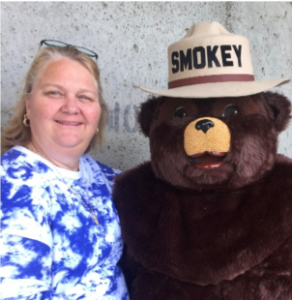
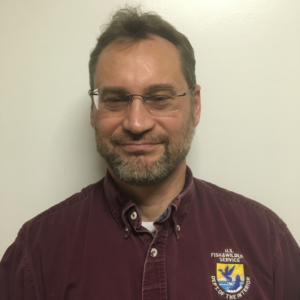
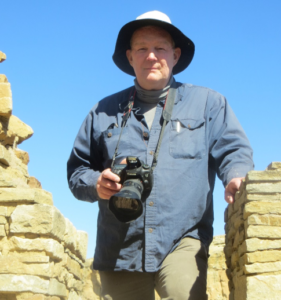
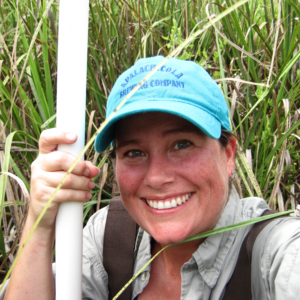
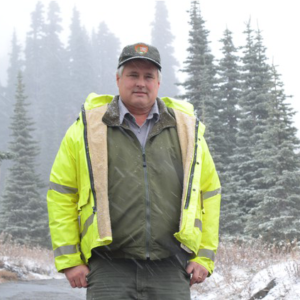 Jim Ziolkowski
Jim Ziolkowski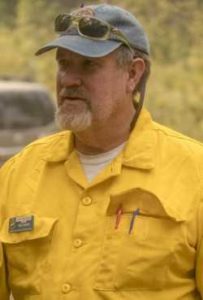
 Q and A with Lisa Norby: 2019 Champion of the Year
Q and A with Lisa Norby: 2019 Champion of the Year